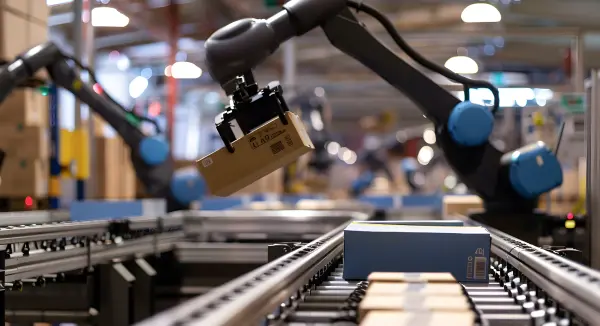
- Innovation
The future of technology is already among us. We share time and space with robots that help us daily with cleaning the house, choosing the playlist, and even preparing meals. In this automated world, virtual assistants organize appointments; autonomous cars roam the roads around the world while drones soar through the skies in an experiment that will revolutionize the logistics industry. We live in an era where spacecraft bound for Mars will integrate the “new normality” in the following years. Fasten your seat belt as the journey begins: Alexa, fast forward to 2030!
At Web Summit 2021, world leaders shared important insights into the future of technology and society. In the following article, we will share highlights of speakers from large companies in the global market, such as Microsoft and SAP. Among the main themes are advances from the Covid-19 pandemic, remote work, agile transformation, and low-carbon economy.
According to the president of Microsoft, Brad Smith, the world desperately needs solutions to current environmental problems. Therefore, new inventions need to be aligned with strategies aimed at sustainability, as only through awareness will we be able to build the future of technology that will revolutionize and preserve life on earth.
“Many companies say that they contribute to preserving the environment by paying for trees not to be cut down. However, paying people not to cut trees is like hiring someone to do nothing. With our arms crossed, we won’t solve the world’s problems“.
Smith emphasizes the importance of developing new technologies that enable a greener market and an even more effective remote working model. Furthermore, he highlights that we need to build new industries, with purpose and innovation to do what the world needs to be done.
“We never know precisely where the future will take us. Therefore, the role of technology companies should be to create tools that help to connect and empower people in remote environments. We are different and we want to work in different ways and places. Think of it as an opportunity to create successful jobs and businesses.”
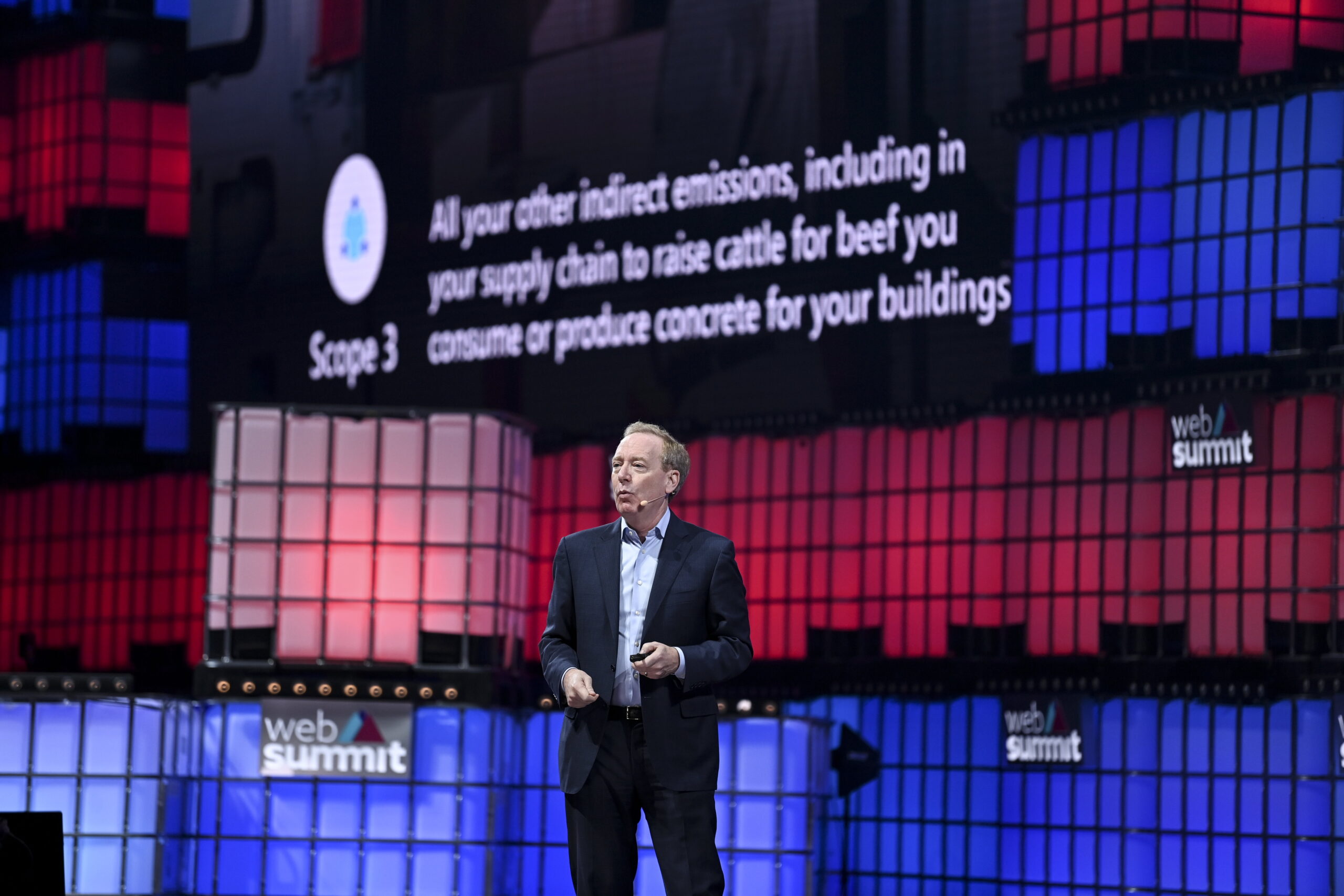
Brad Smith, President of Microsoft, on the center stage of Web Summit 2021.
Photo: Stephen McCarthy.
In this post-pandemic scenario, we all have a big commitment: to create a “new normality”. With this in mind, Microsoft is committed to zero carbon emissions by 2030. For Smith, the “new normality” is to be Net Zero, that is, all energy consumed on-site is also generated on-site. “I am optimistic as I see people and leaders finally debating issues and thinking of strategies to measure and reduce their carbon emissions. I believe that this is an important step towards progress”, he contextualizes.
In a globalized and constantly evolving world, it is common for us to use the same words, even if we do not speak the same language. Therefore, Microsoft’s president proposes the creation of a universal carbon language, based on the four Rs of sustainability: rethink, reuse, reduce and recycle. “We need to learn from our business experiences around the world. Microsoft is committed to transparency and the United Nations Global Compact“.
According to Smith, one of the first lessons we learn in business is that we can’t manage what we can’t measure. With carbon emissions, it is no different. Therefore, we need to move from mathematics to carbon accounting, in order to put effective actions into practice.
“If we can measure something in scale, we can automate this process. It is time to build a new ecosystem that connects sources directly. This is the future of technology we want and need in order to save the planet. Together, let’s put the world and ourselves on the path that turns promises into progress.”
Reducing carbon emissions is also a corporate goal of SAP, a German company that develops software for business process management. According to Juergen Muller, CTO at SAP, in some parts of the world, we are still very divided, but if we look at the Inequality Crisis and at the Climate Crisis, we can all conclude that the planet will not last much longer in the current situation.
We know that technology is synonymous with change, but what do we want as a society? Muller points out that at SAP there is a lot of dialogue about the future of technology and work. “Inequality continues to grow and we believe that learning is the best way to reduce these gaps. Many people, even the financially vulnerable, have smartphones. With that in mind, we provide free courses on our platforms, with the aim of training the workforce”.
The Climate Crisis is a reality, as well as the scarcity in certain professional markets. To resolve these issues, we need cooperation between nations and software that helps companies work efficiently and with planning. “We believe that everything that can be automated must be automated and that companies need to develop increasingly organized processes. It’s very difficult to find the right person with the skill necessary; therefore, we are always monitoring the market, which is increasingly challenging and global”.
Muller highlights that there are many questions that need to be answered within organizations, such as how to build a culture of engagement and sustainability? How can we be sure we produce enough to meet demand? How to have the best people and raw materials? How much energy and money does it take to put plans into action? These issues are complex but generate debates that are essential for building a mindset based on Agile Methods.
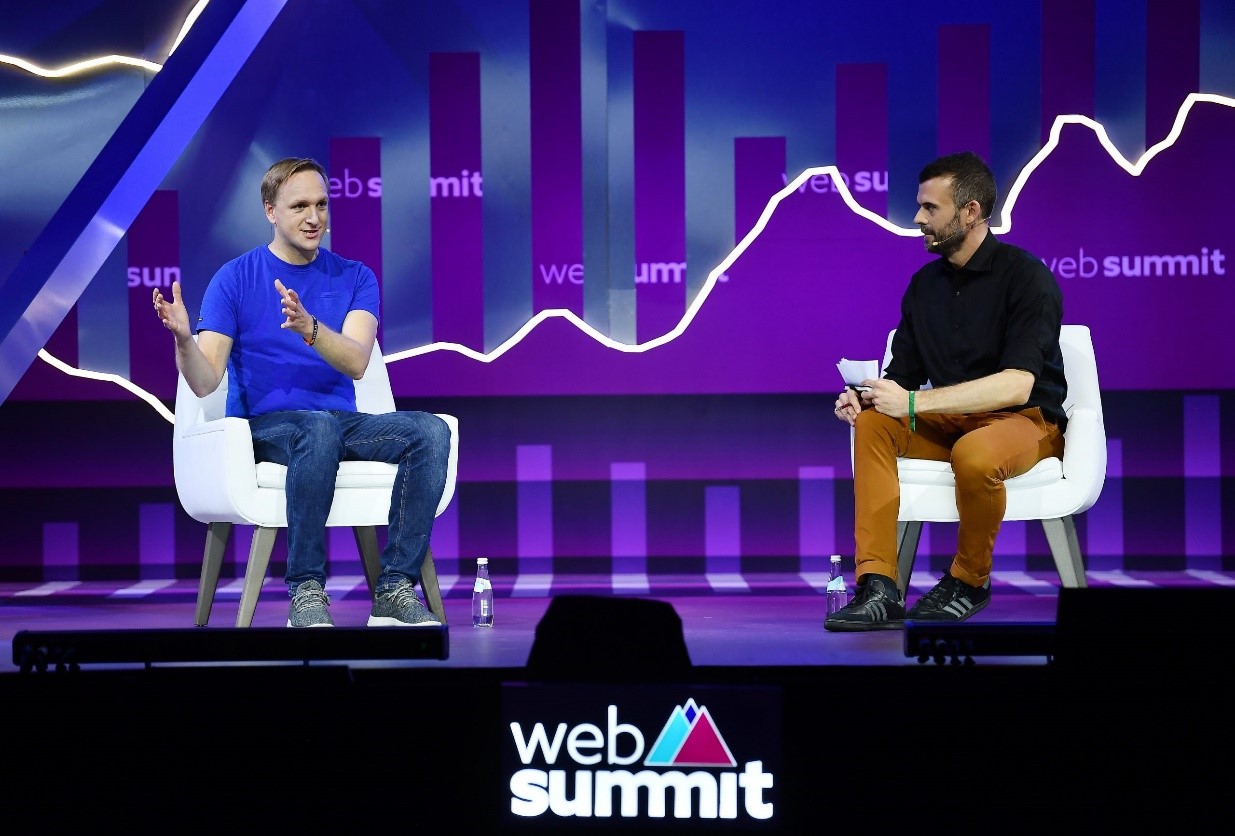
Juergen Mueller, CTO at SAP and Janosch Delcker, CTC at DW, on the CIS stage of Web Summit 2021. Photo: Diarmuid Greene.
Innovation continues to dictate the pace of the market. According to Nico Gramenz, CEO of Factory Berlin, an ecosystem that helps startups from more than seventy countries, industrialization has placed us on another level of society. Therefore, it is time to unite people and technologies.
“Technology should be bringing ideas together and shortening distances, however, we have many challenges to improve this purpose. Web Summit, for example, is no longer just a startup movement. We are here to get to know each other, strengthen ties and work towards global goals, anticipating society trends and building the future of technology“, he analyzes.
Gramenz believes we need more sustainable unicorns and initiatives capable of creating marketplaces with more financial equity. “We are different people, creating businesses around the world. But, after all, how do we do this without forgetting the social impact?”. For Gabriel Braga, CEO of QuintoAndar — a Brazilian startup focused on renting and selling real estate — everything we do has benefits and consequences, and sometimes innovation is responsible for causing distinct effects on society and on stakeholders, which could result in negative impacts on communities.
Braga contextualizes that, in Brazil, QuintoAndar challenges the status quo and invests in innovation to revolutionize the real estate market. “When you identify a problem, you have an opportunity to solve it at the same time. I believe that there are more and more responsible companies with a positive impact on our society. Therefore, we need to reflect as entrepreneurs and citizens: right now, does the world need more unicorns or high-impact social initiatives?”
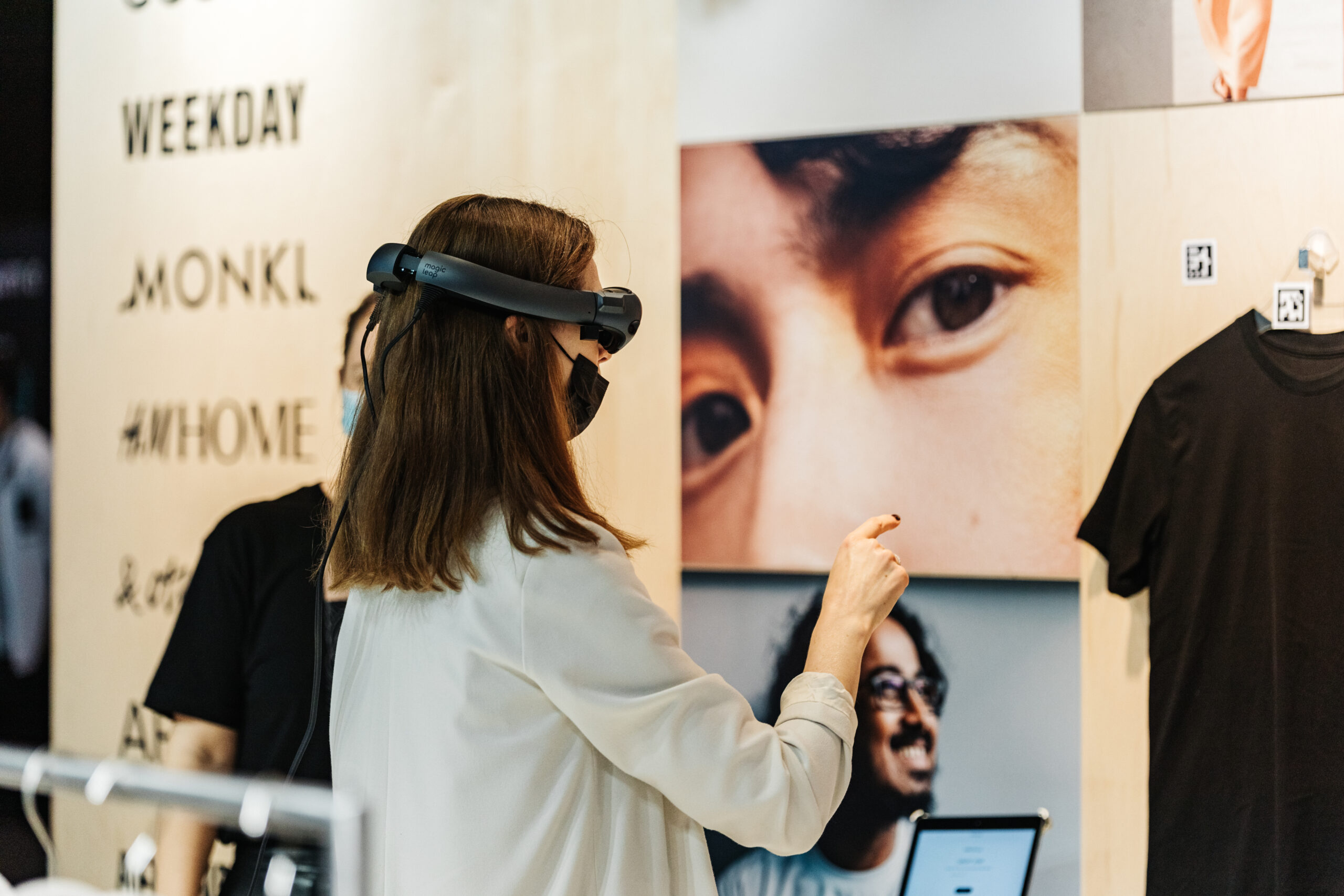
Source: https://www.flickr.com/photos/websummit/
When asked about the current impacts of political instability in the country at Web Summit 2021, the CEO of QuintoAndar highlighted that the political environment can greatly benefit business — especially when there is predictability and stability. “I agree that the Political Crisis is a challenge for companies in Brazil and Latin America. It would be easier if we were aligned and integrated into a structured economic development plan. However, innovation is happening even without an ideal scenario”, he guarantees.
Being a unicorn startup requires talent, a plan of action and expansion, and, of course, a loyal and massive user base. QuintoAndar reached this position in 2019, after a USD 250 million investment round. So what can we expect from the Brazilian startup in the coming years?
“We have a lot of work to do in Brazil. However, we have already started our internationalization plan in Latin America and we will open an office in Lisbon soon, with the aim of expanding the market in Europe. It is a big challenge, but we’re very happy”, Braga shares.
The CEO also spoke about the future of technology, highlighting the Fintechs — startups in the financial sector that drive innovation and make society more efficient and inclusive. “In the coming years, we will see many things change around us. With the pandemic, we learned that people can work from anywhere and that the development of skills must be constant. More than ever, we need to bring people closer to technology, remembering that we educate a new generation by inserting it into the job market, and sometimes, this same generation teaches us how to think about the future. It is this mixture that will help us shape the reality of the new times.”
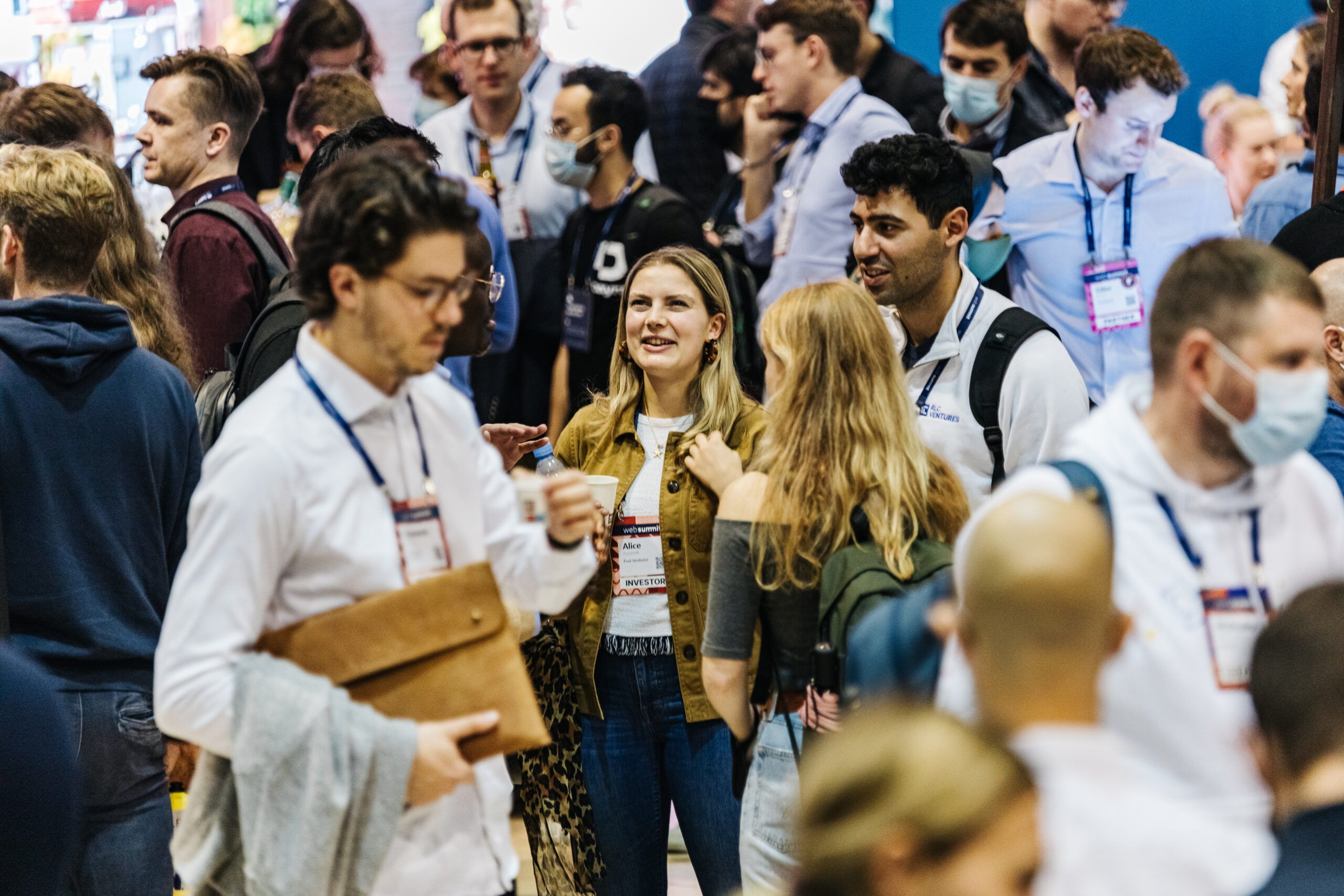
Source: https://www.flickr.com/photos/websummit/
We’re hoping for the positive predictions to come true and we’re already looking forward to Web Summit 2022!
The first article in this series: Web Summit 2021: Highlights Of The Technology Event